Some days, the Rev. Enoch Mark wishes his 20-year-old daughter Monica were dead. One year ago she was kidnapped, and not a day goes by that he doesn’t think about her fate. “Sometimes I think knowing she is dead would be better than knowing nothing at all,” he says. Today, the private agony of a father lamenting his missing daughter is amplified 219 times, as Nigeria observes the one-year anniversary of a kidnapping that stunned a country and woke the world to the threat of Boko Haram.
On the night of April 14, 2014, the calm of Chibok, a rural town in northeastern Nigeria, was shattered as militants stormed the dormitory of a government boarding school for girls just before midnight. Gunmen rampaged through the compound, shooting guns and setting fire to buildings while others, disguised as military personnel on a rescue operation, bundled the students into waiting trucks. The girls’ screams could be heard half a mile away. Itinerant preacher Mark, who had only just enrolled his daughter Monica at the school, ran toward campus. By the time he arrived it was too late: the militants had already rounded up 276 girls and disappeared into the nearby Sambisa forest. “It would have been better to see the dead body of my daughter than to let them carry her away,” he says of that night. “But I didn’t see anyone left, dead or alive.”
The abduction drew international condemnation, with celebrities from Michelle Obama to Madonna and Nobel Prize winner Malala Yousafzai calling for their release. Boko Haram, a long-running localized Islamist insurgency determined to bring its radical interpretation of Islamic law to the region, entered the lexicon of global terrorist groups and Chibok, which didn’t even have a Google Maps entry, became a household name. Fifty-seven of the girls managed to escape in the first few days, leaping from the transport trucks where they had been packed like cattle, or dashing into the forest when their captors’ backs were turned. But one year on, 219 girls remain missing, a black eye for the Nigerian military that has done little to locate them, and a rebuke to the international community that joined the Twitter campaign to #BringBackOurGirls, but has achieved little else, despite three regional conferences and international pledges of support. “We keep on telling the girl child that she is important, that she should dare to be educated. Yet we have left 219 of her sisters with terrorists,” says Aisha Yesufu, a mother of three in the Nigerian capital of Abuja who is spearheading the campaign to keep the issue alive. “So everywhere in the world, the girl child, she has realized that she doesn’t matter, not to the world. Nobody cares. Because if her sisters can be left with their abductors for so long, then there is something wrong with us as humans.”
On Tuesday Nigeria’s President-elect Muhammadu Buhari said his government would do everything in its power to bring the Chibok girls home, but he injected a note of caution. “We do not know if the Chibok girls can be rescued. Their whereabouts remain unknown. As much as I wish to, I cannot promise that we can find them.” The Nigerian military, with assistance from mercenary groups as well as neighbors Chad, Niger and Cameroon, has managed to force Boko Haram out of much of the Belgium-size territory it once held, but the group, including leader Abubakar Shekau, is thought to have taken refuge in the trackless Sambisa forest, where it is protected by dense foliage and difficult terrain.
Boko Haram, which loosely translated means “Western education is forbidden,” started in 2002 as a rejectionist religious group that sought salvation in a fundamentalist reading of Islamic law. It turned violent in 2009, when clashes with Nigerian security forces resulted in the extrajudicial killing of founder Muhammad Yusuf. Since then the group has killed around 13,000 people in a violent campaign of bombings, suicide attacks, massacres and guerilla warfare. An estimated 1.5 million people have been forced from their homes by the insurgency, including some 800,000 children, according to the U.N. Children’s Fund.
According to a newly released report by Amnesty International, the Chibok girls are but a small fraction of the 2,000 women and children who have been abducted by Boko Haram since the beginning of 2014. The testimonies of those who escaped makes for grim reading: repeatedly raped, married against their will and forced to fight. It is likely the Chibok girls share similar fates, if they are alive at all — when Gwoza, the capital of Boko Haram’s self-declared caliphate, was recaptured in late March, residents reported that the fleeing militants killed their wives and stuffed the bodies into wells rather than let them be captured by “infidels.” But residents, speaking to the BBC, said they had seen about 50 of the Chibok girls under Boko Haram guard in the weeks before the city fell. “I don’t believe they are dead,” says Yesufu, the activist, by telephone from Abuja. “They are alive, somewhere. Boko Haram understands the importance of these girls, and will want to keep them as bargaining chips.” Shekau has declared in several video broadcasts that the girls, many of whom were Christian, had either converted to Islam and been married off, or refused to convert and sold as slaves.
Just a few months after the Chibok kidnapping, Boko Haram launched a series of devastating suicide attacks by women, leading some to speculate that the girls could have been brainwashed, or otherwise forced into detonating explosive vests and backpacks in crowded markets. “When Kano saw four explosions in the space of a week in July, all apparently involving young women or teenagers, the first thought was: Is this the Chibok girls?” says Elizabeth Pearson, a doctoral researcher in gender and radicalization at King’s College London and a member of the Nigeria Security Network. As a tactic, it is extremely effective: male security guards are loath to pat down female shoppers, and few suspect women to be suicide bombers. With female bombers, “the shock and fear value is greater. With young women being used particularly, this guarantees greater publicity and media coverage.” But the evidence is inconclusive, notes Pearson. There has been no DNA testing, and the damage wrought by the bombs makes visual identification all but impossible.
For Mark, the idea that his daughter might be living as a captive, abused, enslaved and terrified, is worse than the idea of her being dead. He was told, early on, that one of the kidnapped girls had refused to convert to Islam. As punishment, she was stoned to death. “If that really happened,” he told TIME in January, “it might be my daughter, because she holds her Christian faith so strong. If my daughter was stoned to death for Christ’s sake, I will be grateful.” For some, a martyr’s brutal death gives more comfort than knowing nothing at all.
See the Nigerian Town Bama Freed From Boko Haram

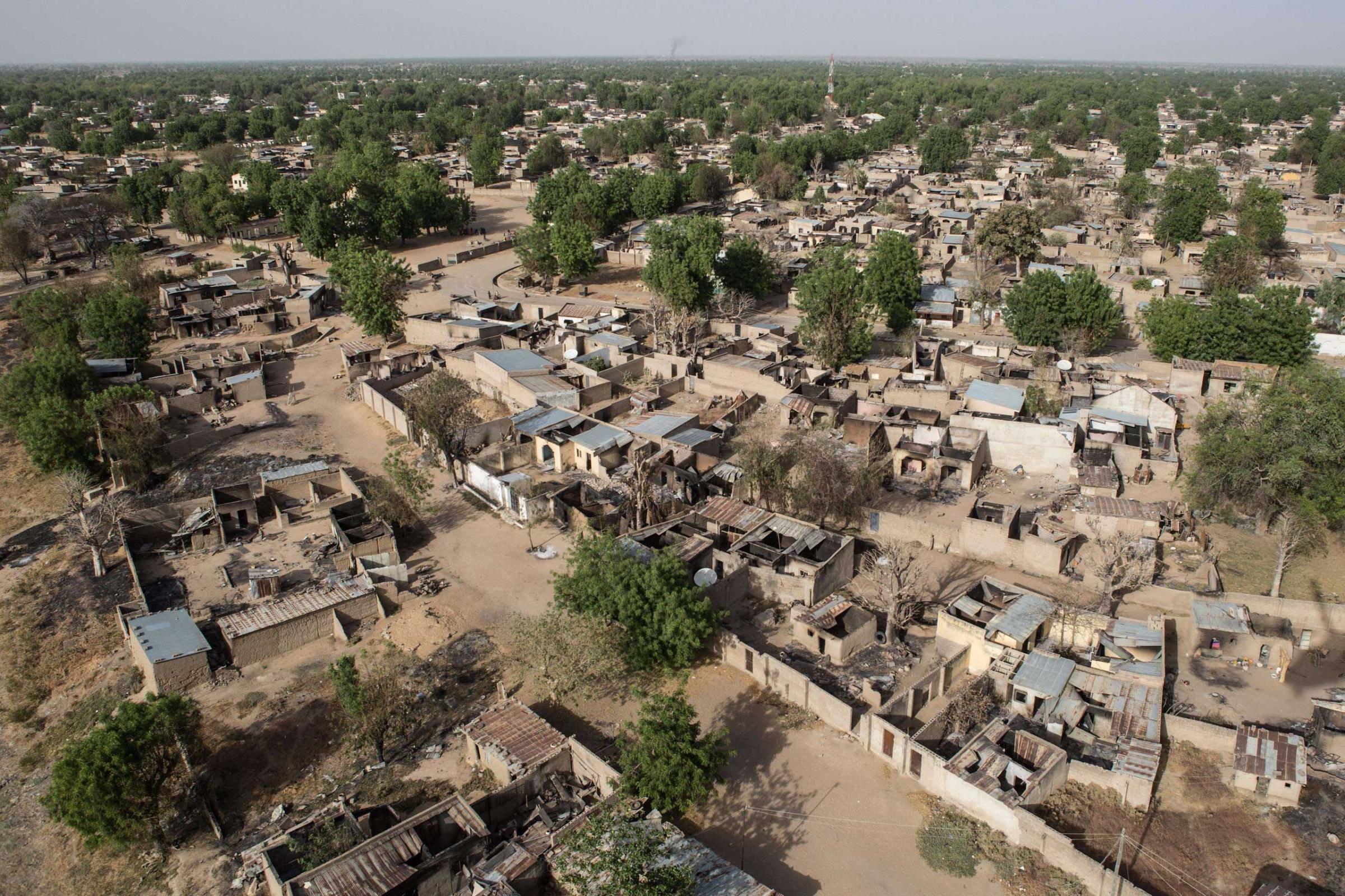
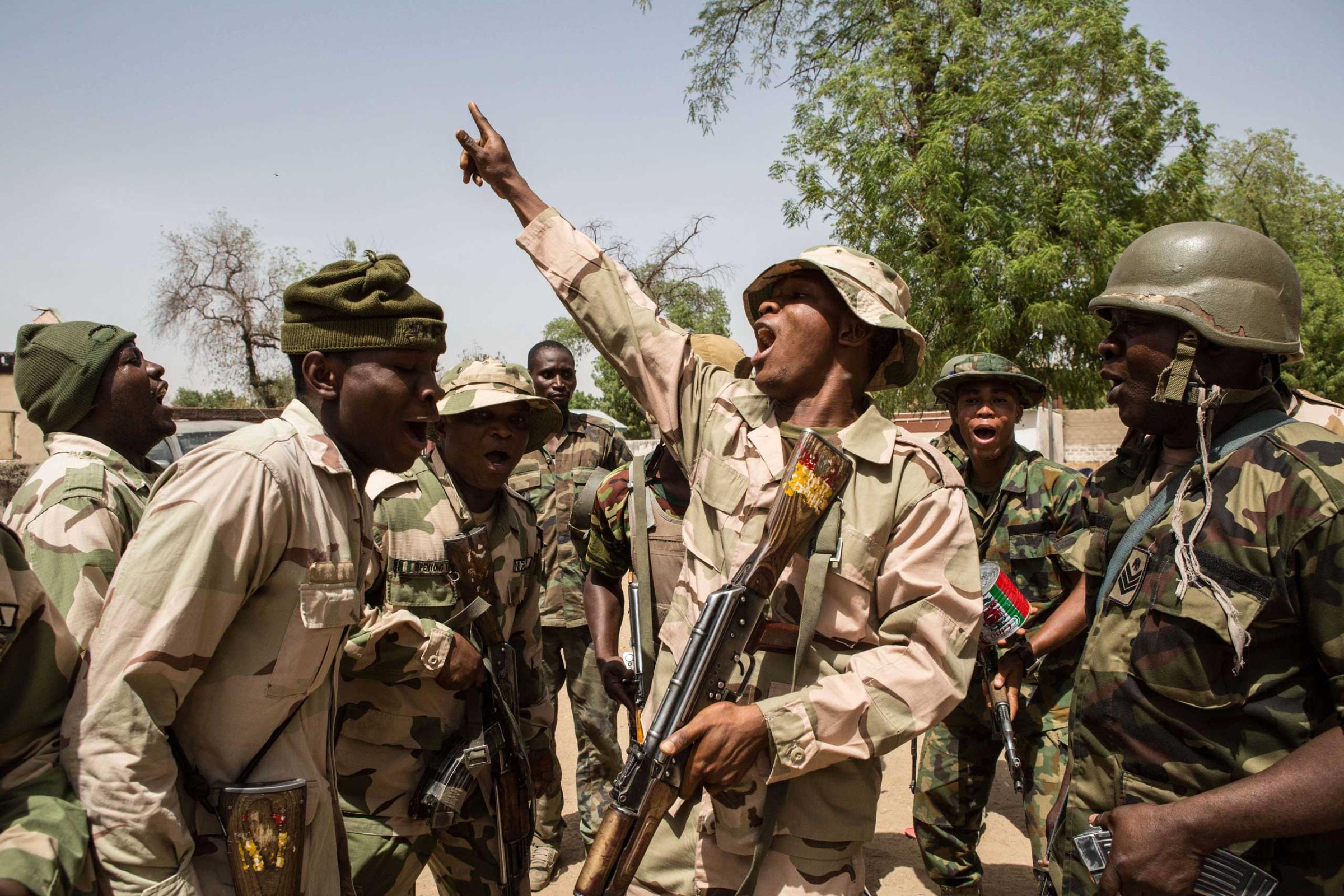
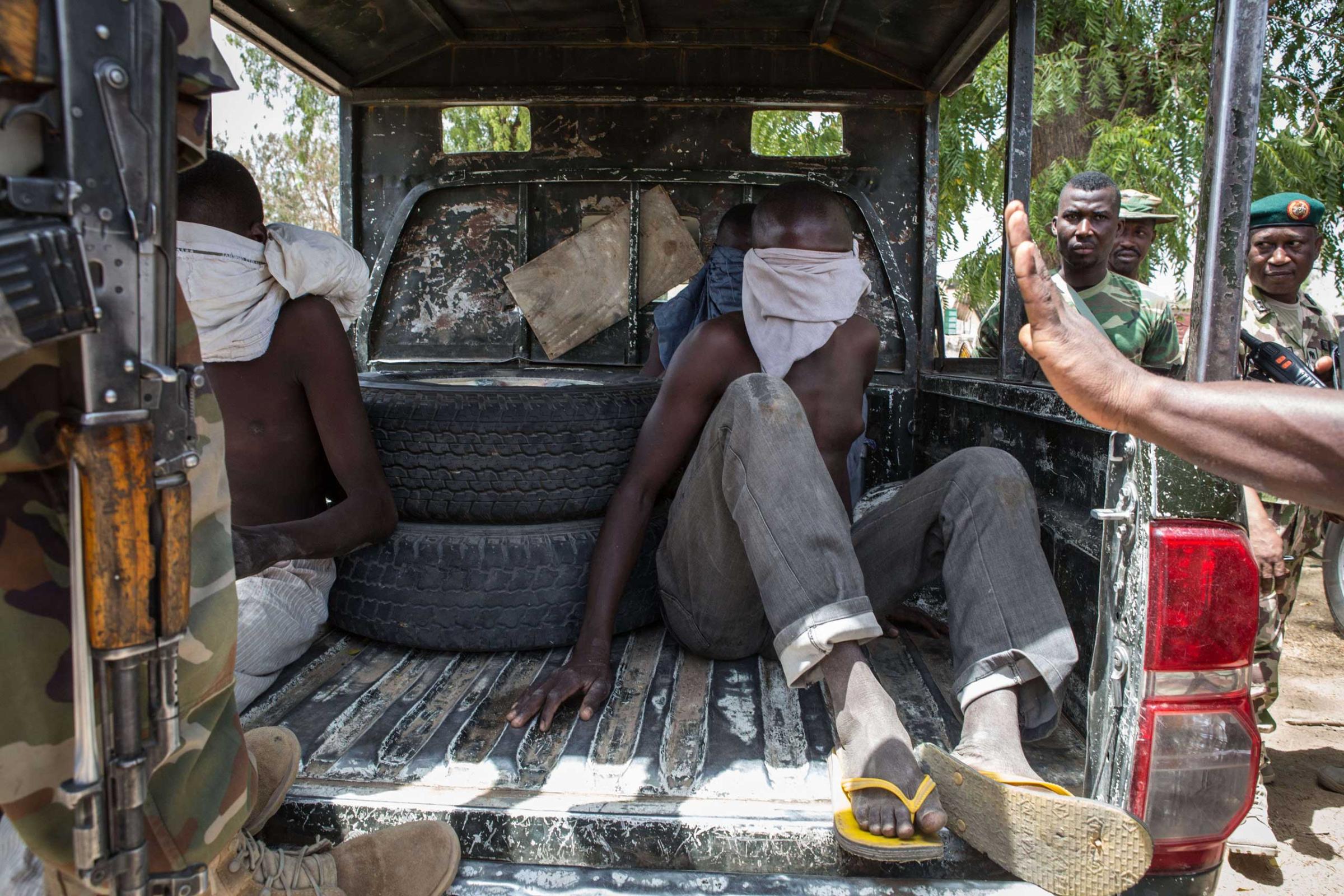
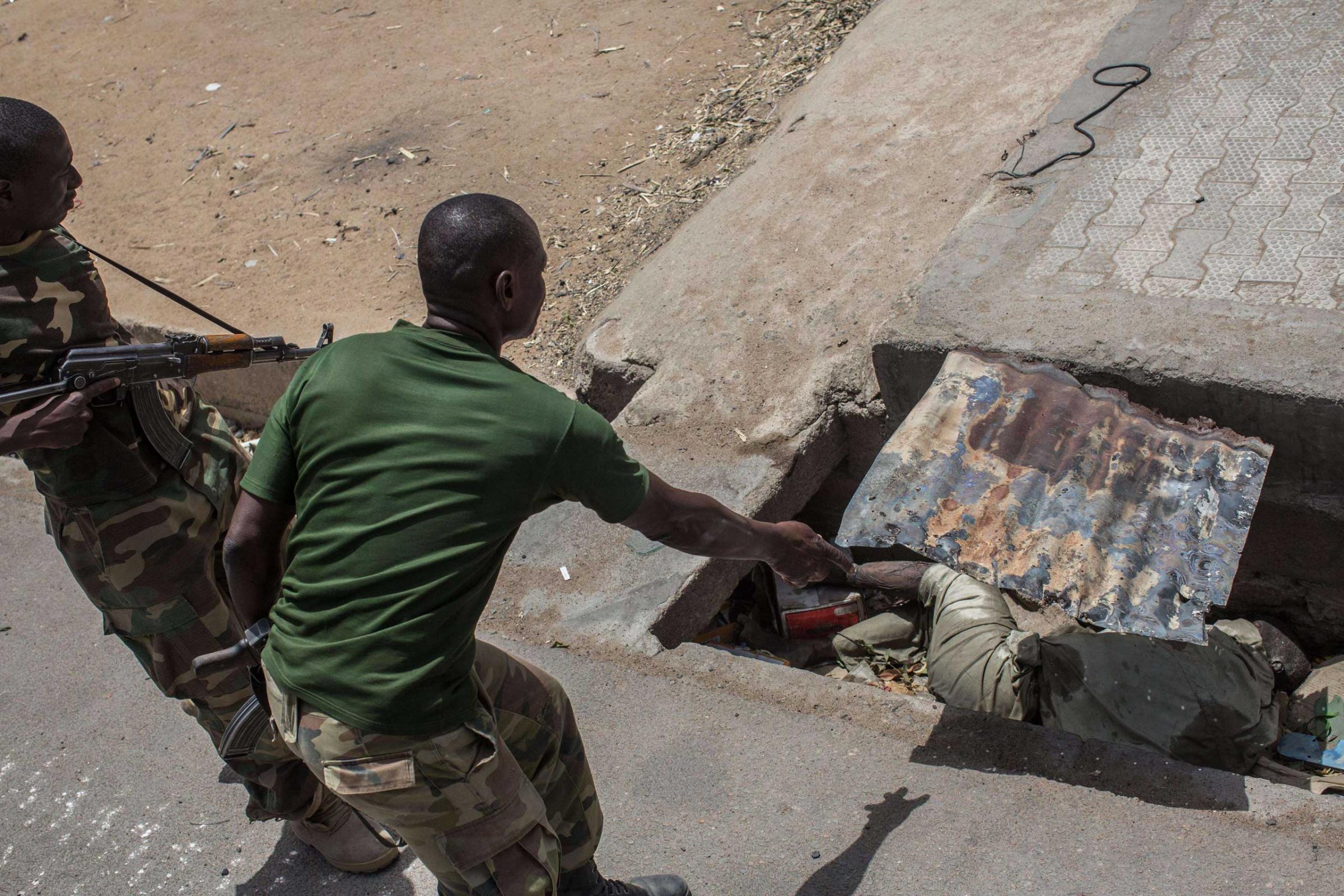
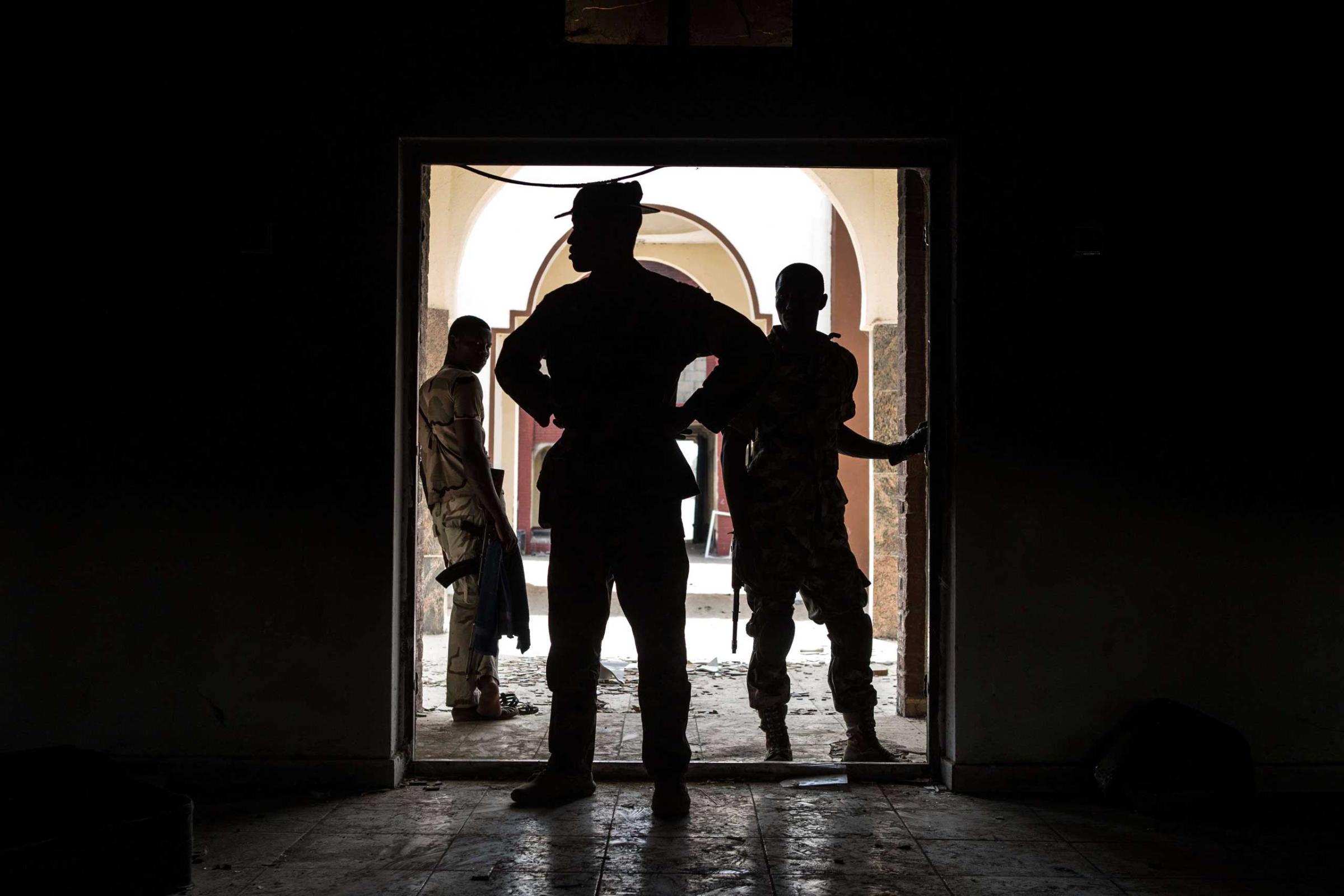
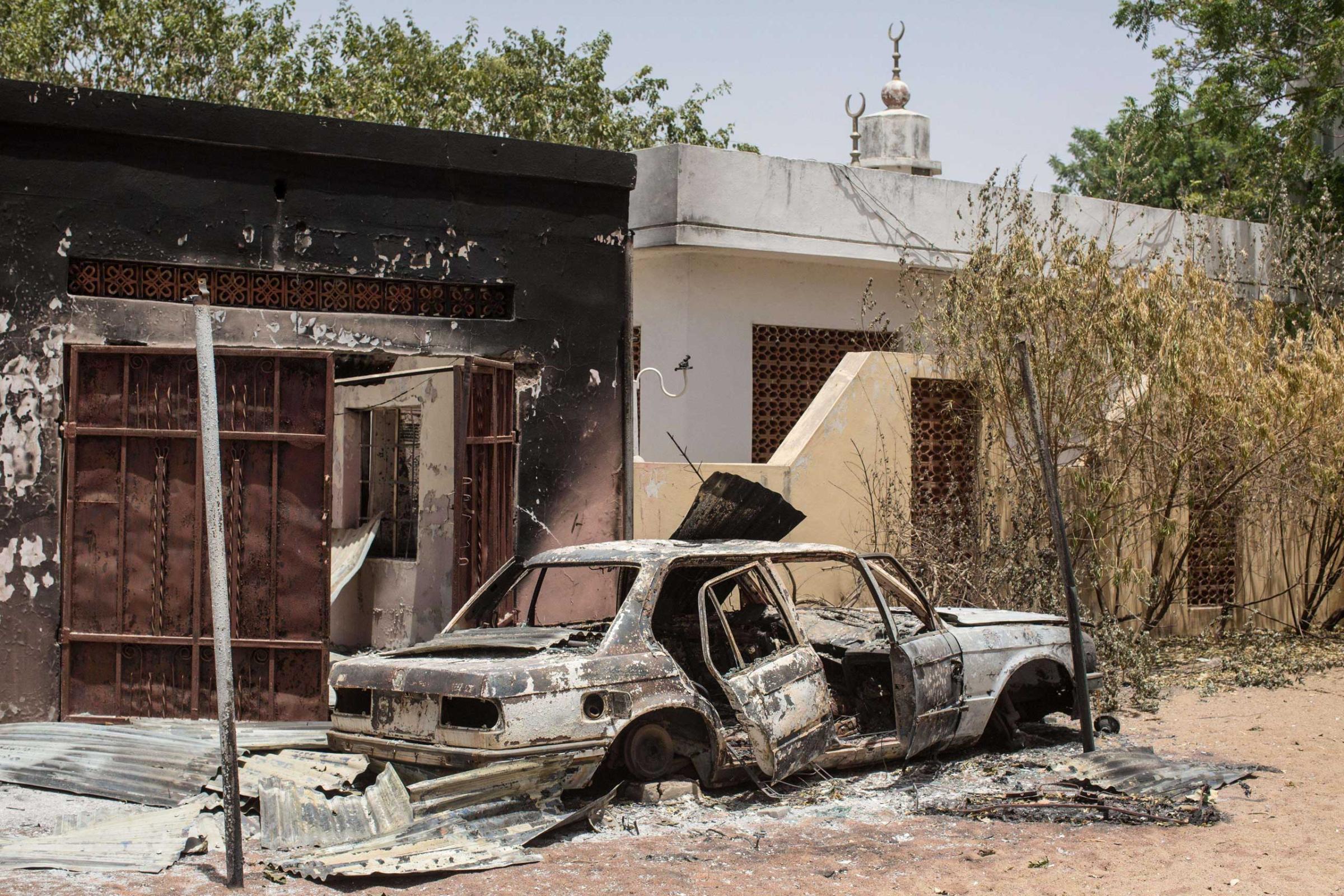
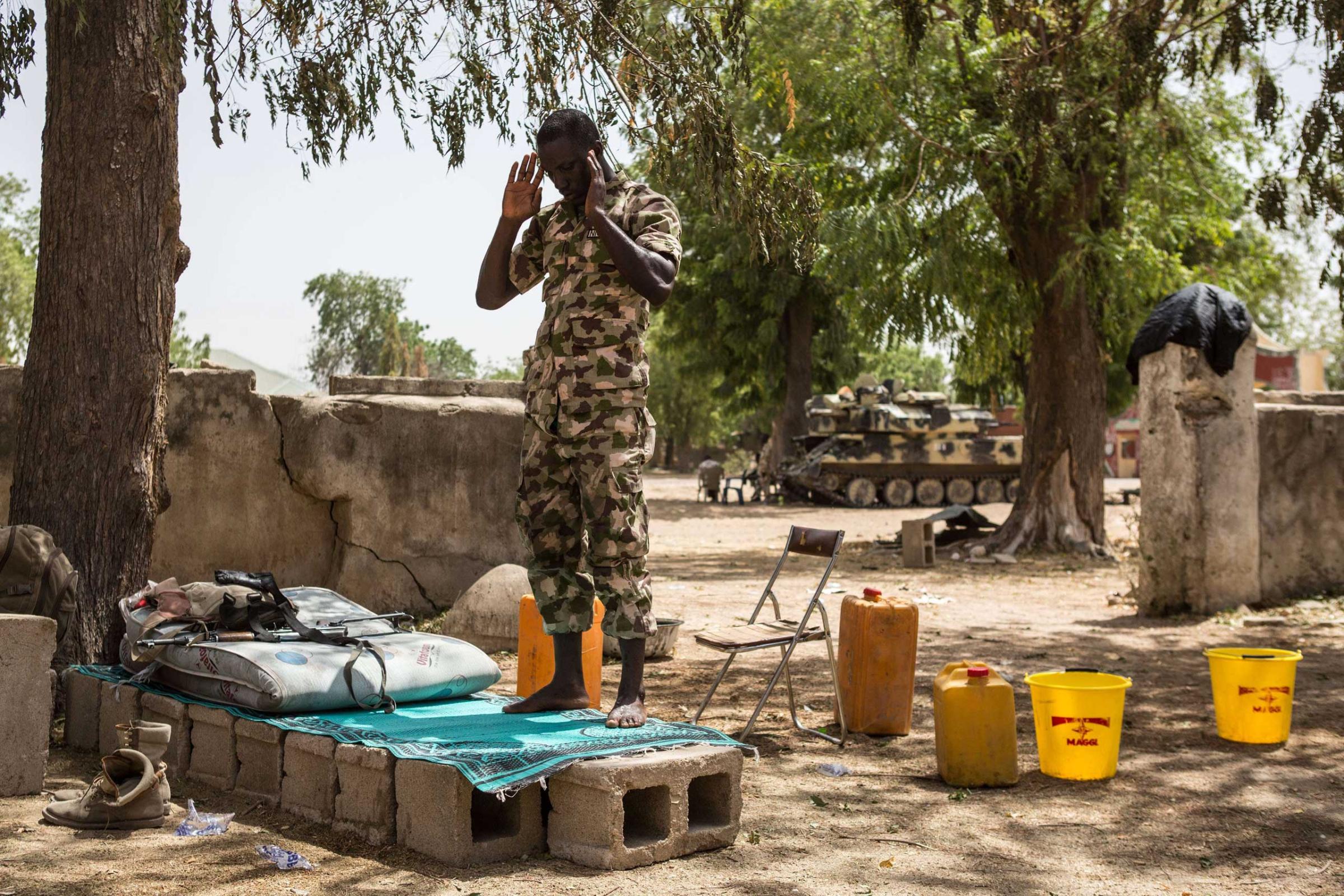
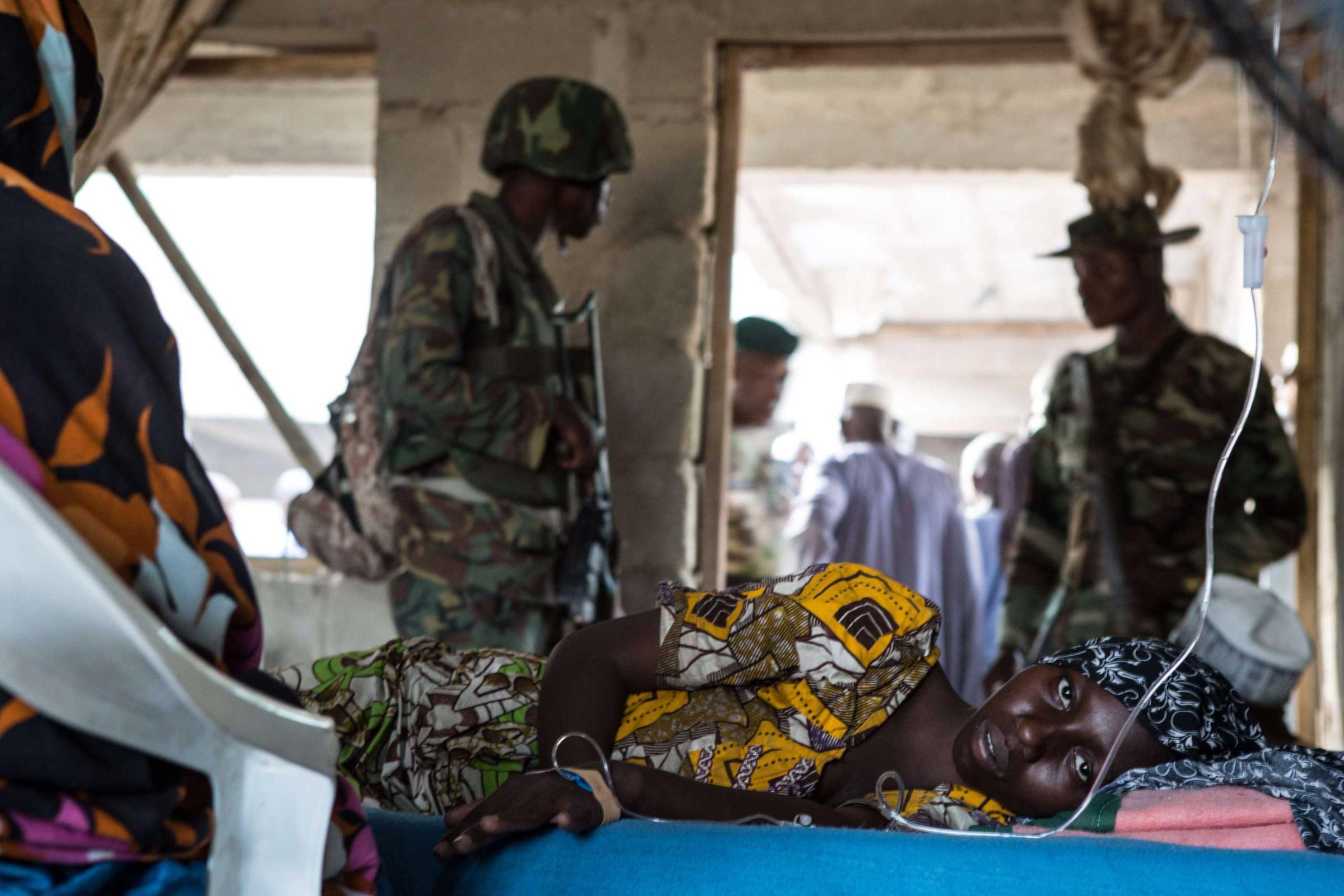
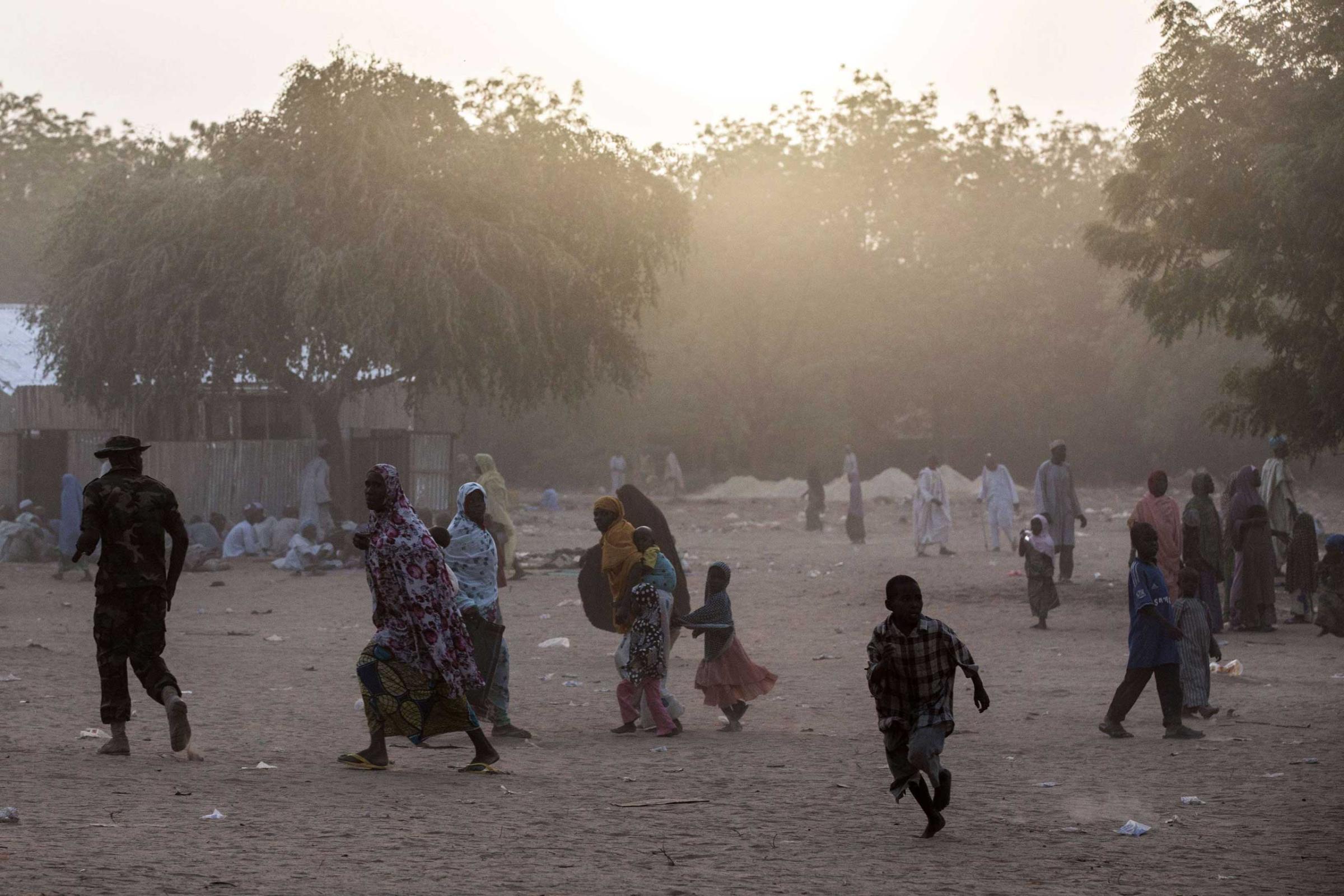
More Must-Reads from TIME
- Why Trump’s Message Worked on Latino Men
- What Trump’s Win Could Mean for Housing
- The 100 Must-Read Books of 2024
- Sleep Doctors Share the 1 Tip That’s Changed Their Lives
- Column: Let’s Bring Back Romance
- What It’s Like to Have Long COVID As a Kid
- FX’s Say Nothing Is the Must-Watch Political Thriller of 2024
- Merle Bombardieri Is Helping People Make the Baby Decision
Contact us at letters@time.com